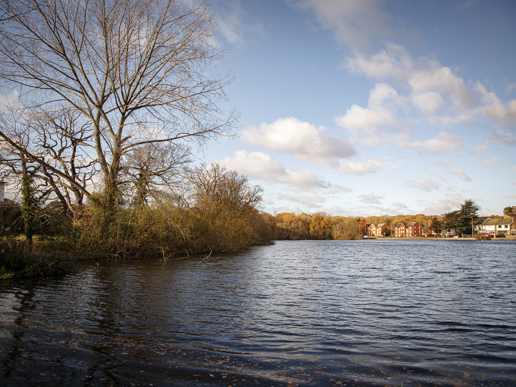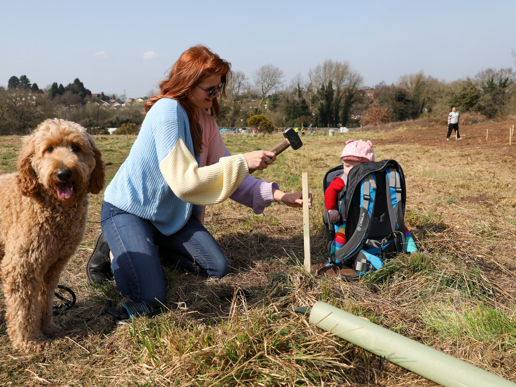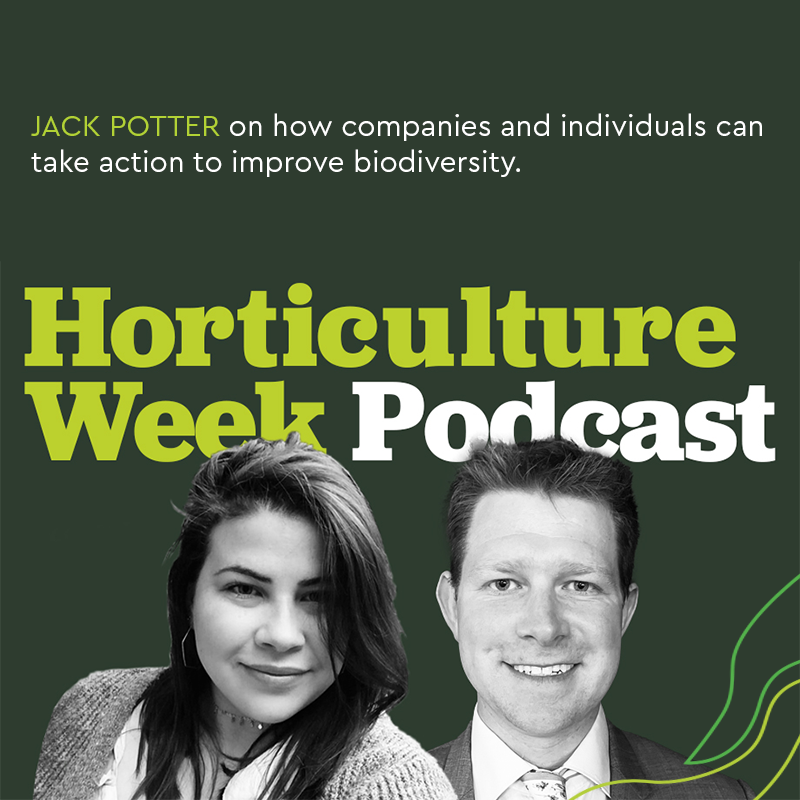Reconciling biodiversity and profit in landscape maintenance

Jack recently spoke to Horticulture Week’s Senior Reporter Rachael Forsyth for a podcast about changing landscape maintenance regimes to a nature-positive approach that delivers measurable results for people, place and planet.
The podcast contains some interesting insights and is available here. Please do listen to it if you can.
- Fresh from his key role influencing the Biodiversity 3.0 metric at Natural England, Jack Potter now uses his deep understanding of the metric to help Ground Control clients account for biodiversity impacts and do something positive for nature.
Here he talks to Horticulture Week about changing landscape maintenance regimes to a nature-positive approach that delivers measurable results for people, place and planet. Here’s a summary of Jack and Rachael’s conversation:
Biodiversity 3.0 Guidance
Rachael wanted to find out what Jack has learned about the biodiversity metric since he started working at Ground Control.
Jack said that he has quickly realised that the metric, and the guidance, is very much tailored to the development sector. He’s now hoping to make it fit for purpose for anyone wanting to account for their biodiversity impacts, adding that some clients don't really have clear objectives yet, but just want to do something good for the environment.
Pushing the Biodiversity Agenda
Rachael pressed Jack on how a grounds maintenance company like Ground Control balances client’s wishes and the management of infrastructure with working to promote nature and greater biodiversity.
In grounds maintenance the direction of travel, according to Jack, is having a less intensive mowing and hedgerow cutting regime. Clients are keen on this because it’s good for biodiversity, and when managed smartly can deliver positive results for nature that are self-funded through a reduction in maintenance visits. The nature-positive transition is something that Ground Control and its expert ecology and biodiversity specialists actively encourage as part of its mission to champion sustainability and deliver better environments.
The Ministry of Justice Promotes Biodiversity
Rachael wanted to know whether there is any particular site or project that really stands out in Jack’s mind as an example of Ground Control working with the client to increase biodiversity.
Jack had recently been working at one of the Crown Court sites of the Ministry of Justice. This happens to be right next to an internationally important wildlife site and has quite a bit of green space on site as well. He said that trying to figure out how they can quantify their biodiversity gain by changing their management regime was quite an interesting project for Ground Control to undertake. By incorporating deadwood to make habitat piles and through creating intentionally bare patches of ground to be colonised by invertebrates, there was an easy biodiversity win on this project.
The UK’s Biodiversity Crisis
Rachael put it to Jack that the UK is in a kind of biodiversity crisis at the moment.
Jack agreed, saying the UK is one of the most nature-depleted areas in the world. This is a really critical time, he said. It’s absolutely vital to retain and enhance every single scrap of valuable habitat or anything where biodiversity can live, including the corridors that connect them. We must also allow them to spill over into the wider environment, and where possible create new areas as well.
Is the UK Government Helping?
Rachael wondered whether the Government has a broad enough understanding of how important biodiversity is, and how important the horticultural industry is in terms of preserving biodiversity and fighting climate change.
Jack said that the current picture is uncertain. The Government’s recent actions have weakened some of our strongest and most important environmental legislation. He felt that downgrading environmental protections at our most valuable and internationally important sites is worrying to say the least.
Promoting Greater Biodiversity - What Can Businesses and Individuals Do?
Rachael wanted to know if Jack had any advice for what businesses and individuals can do around promoting greater biodiversity, both on commercial sites and in private gardens.
At a strategic level, Jack said there's an increased need for businesses to be doing the right thing for biodiversity and the environment. Carbon and climate are obviously top of the agenda for many organisations at the moment. How to quantify these and minimise their impacts, and to decarbonise their organisations are the key issues.
Jack also noted that there’s an ever-closer understanding of the link between carbon and nature as a double defence against climate change. Jack applauded the creation of the UN task force for nature-related financial disclosures, of which Ground Control is a contributor. He cited it as a critical step forward that has the weight to accelerate the non-development sector’s maturity in quantifying risks and dependencies upon nature, as well as the opportunities that each company has to enhance biodiversity. This is a real, and very welcome, change and it's going to be a very interesting space to be in over the next few years.
Turning to maintenance regimes, Jack said that cutting and mowing less often is always going to be a good thing. “No Mow May” is very popular now and some people even extend that to June as well. If you can avoid mowing lawns or trimming hedges during the key flowering period that’s ideal. Failing that, at least leave some areas of grass to grow long.
Progress towards Net Zero at Ground Control
Rachael noted that Ground Control became carbon neutral in 2020. As the company is now working towards net zero she wondered how biodiversity plays into that objective.
Jack said the company is well on schedule to achieve net zero by 2050 and is integrating biodiversity into everything we do. He mentioned that through the Evergreen Fund, Ground Control acquired a 296-acre plot of arable farmland and woodland near Braintree, Essex. The site is now The Wildfell Centre for Environmental Recovery and is a showcase of environmentally conscious land management practices, providing proof of concept to public and private landowners.
Jack shared that at Wildfell, Ground Control’s biodiversity specialists collaborate with a 'super group' of partners to test land management practices that boost biodiversity, increase habitat diversity and increase nature recovery network connectivity.
Just Keep on Talking About Biodiversity
Rachael thanked Jack for sharing his insights and said that he sounded positive about the future.
Summing up his thoughts, Jack said that the most important thing now is for people to keep talking about biodiversity because as long as the public care, the more the politicians will care, and the legislation will follow. Empowering people to do their bit does make a difference. If people feel empowered they will have a voice and this will inspire them to care.
Jack wants people to carry on caring and to carry on talking about it. If this happens, the current positive direction of travel will continue when it comes to promoting greater biodiversity.
Every green space is valuable!
The full conversation between Rachael and Jack is available here and we encourage you to listen to this podcast.
You can subscribe to or follow the Horticulture Week podcast via Apple podcast, Spotify, Google podcast, or your preferred podcast platform.

The future of UK Biodiversity championed at Green Gains Live

Biodiversity enhancement in action





